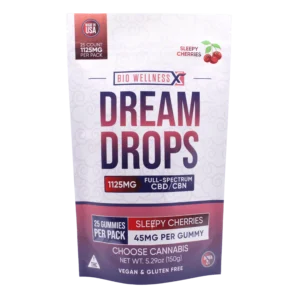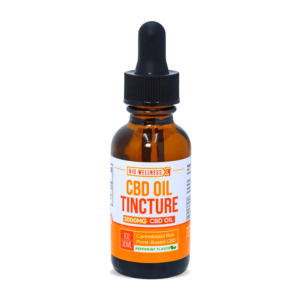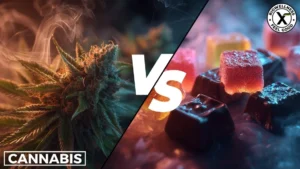key points
When comparing THCa and CBD, we should consider their psychoactive properties, benefits, and legalities. THCa in its raw form is non-psychoactive but converts to psychoactive THC when heated, whereas CBD remains non-psychoactive. Both may offer therapeutic benefits; THCa might help with inflammation, and CBD is known for its calming and anti-anxiety effects. CBD is federally legal if derived from hemp, while THCa’s legality varies by state. Both compounds are available in diverse forms, catering to different preferences for therapeutic or recreational use. As we explore further, we’ll uncover deeper insights into their unique attributes and applications.
Psychoactivity: Does THCa or CBD Get You High?
When we examine the psychoactive properties of THCa and CBD, it’s clear that neither directly causes a high.
THCa, in its raw form, doesn’t produce psychoactive effects until it’s decarboxylated into THC.
Meanwhile, CBD is non-psychoactive and can even counteract the high induced by THC, making it a preferred choice for those seeking therapeutic benefits without euphoria.
THCa
Regarding psychoactivity, THCa presents an interesting dynamic. When consumed raw, THCa doesn’t induce a high. However, when exposed to heat, it undergoes decarboxylation, transforming into Delta-9 THC, known for its psychoactive effects. Let’s examine this transformation further:
| Form | Psychoactive? |
|---|---|
| Raw THCa | No |
| Heated THCa | Yes |
| Delta-9 THC | Yes |
| Raw CBD | No |
| Heated CBD | No |
This transformation offers a traditional cannabis experience.
CBD
While CBD and THCa both originate from the cannabis plant, they differ markedly in their psychoactive properties.
CBD is non-psychoactive, meaning it doesn’t produce the “high” typically associated with cannabis use. Research shows that CBD interacts with the endocannabinoid system without activating the CB1 receptors responsible for psychoactivity.
Consequently, when we consume CBD, we can expect therapeutic effects without any intoxicating sensations.
| THCa | CBD | |
| Yes – When Heated or Aged | Psychoactive | No |
| Similar to Traditional Weed, Psychoactive Mind and Body High | Experience | Relaxing, Calming and Sometimes Sedative |
| Typically as intense as a hybrid weed strain. Depends on amount consumed and user tolerance. | Intensity | Lowest intensity |
| Neuroprotective, Physical Relief, Anti-Inflammatory | Benefits | Physical Relief, Anti-Anxiety, Sleep Support |
| Legal Under 2018 Farm Bill | Legal Status | Legal Under 2018 Farm Bill |
| Cannabis Flower, Concentrates, Edibles | Popular Forms | Gummies, Tinctures, Edibles, Topical Creams |
What is the Experience and Intensity Like?
When comparing the experiences of THCa and CBD, we find that both compounds offer distinct effects and levels of intensity.
CBD is generally associated with a calming sensation and lacks psychoactive properties, making it suitable for those seeking relaxation without a high.
In contrast, THCa is non-psychoactive in its raw form but can convert to THC when heated, potentially leading to more intense effects.
CBD
Exploring the experience and intensity of CBD consumption reveals a nuanced landscape of effects that are generally subtle and calming.
We find that CBD doesn’t induce the psychoactive high associated with THC, making it appealing for those seeking relaxation without mental alteration.
Research supports its potential to alleviate anxiety and promote a sense of well-being, with users reporting mild, yet noticeable, calming sensations.
THCa
Understanding the experience and intensity of THCa reveals a compound distinct from its better-known counterpart, THC.
Unlike THC, THCa is non-psychoactive until it’s decarboxylated, meaning it doesn’t produce a high. When smoked, vaped or baked in edibles, that THCa converts into Delta-9 THC and can offer intense psychoactive experiences similar to traditional weed.
The intensity will depend on the users tolerance, as well as amount of THCa consumed, the product, consumption method and a variety of other factors.
Studies suggest THCa may offer anti-inflammatory and neuroprotective benefits.
While we explore its therapeutic potential, it’s essential to remember the effects can vary based on individual biochemistry and consumption methods.
What are the Benefits and Side Effects of THCa and CBD?
As we examine the benefits and side effects of THCa and CBD, it’s important to contemplate the distinct properties of each compound.
THCa is often touted for its potential anti-inflammatory and neuroprotective benefits, while CBD is widely recognized for its analgesic and anti-anxiety effects.
However, both compounds can present side effects such as digestive discomfort or fatigue, and understanding these nuances can guide us in making informed choices.
THCa
In recent years, THCa, or tetrahydrocannabinolic acid, has garnered attention for its potential benefits and distinct characteristics compared to CBD.
We’ve seen evidence suggesting THCa may offer anti-inflammatory and neuroprotective effects.
Side effects remain relatively minimal, but are similar to traditional weed and can include increased heart rate, dry mouth and paranoia. Ongoing research is essential to fully understand its safety profile and therapeutic potential.
CBD
While THCa offers intriguing possibilities, CBD, or cannabidiol, has also gained significant attention due to its wide range of potential health benefits and minimal side effects.
Research indicates CBD may help alleviate anxiety, reduce inflammation, and manage physical discomfort without the psychoactive effects associated with THC.
Side effects are typically mild, including fatigue and dry mouth, making CBD a favorable option for many seeking therapeutic relief.
Exploring Legality – CBD vs THCa
CBD is generally legal at the federal level in the United States, provided it’s derived from hemp and contains less than 0.3% THC.
In contrast, THCa’s legality is more complicated, typically considered legal but often falling under the same restrictions as THC due to its potential to convert to THC when heated.
CBD
Maneuvering the legal landscape of CBD and THCa can feel like deciphering a complex puzzle.
CBD, derived from hemp, became federally legal under the 2018 Farm Bill, provided it contains less than 0.3% THC.
However, state laws vary considerably, requiring us to verify local regulations.
It’s essential to understand that while CBD is widely accessible, its legal status isn’t uniformly regulated across all jurisdictions.
THCa
Shifting our focus from CBD to THCa, we encounter another intriguing aspect of the cannabis plant’s legal framework.
THCa’s legality is less clear-cut than CBD’s, and here’s why:
- Federal Regulations: THCa isn’t explicitly listed under the Controlled Substances Act.
- Conversion Concerns: It can convert to THC through decarboxylation, raising legal questions.
- State Variability: States have different laws regarding THCa.
For now, many experts consider THCa legal under the 2018 Farm Bill, as it is less than 0.3% Delta-9 THC and derived from hemp. Understanding these complexities is essential.
Popular Forms and Products of THCa and CBD
THCa is commonly found in raw cannabis products like fresh leaves and juices, while CBD is widely available in oils, tinctures, and edibles.
Understanding the variety of these products helps us choose the most suitable options for therapeutic or recreational use.
THCa
When exploring popular forms and products of THCa and CBD, it’s essential to understand the traditional formats available to consumers.
THCa is typically found in:
- THCa Flower: Ideal for smoking due to its natural form.
- THCa Concentrates: These provide a potent option for vaping.
- THCa Edibles: Although less common, they offer a non-smoking alternative.
These formats guarantee users can select based on preference and intended use.
CBD
CBD offers a versatile range of consumption options that cater to various preferences and needs.
We primarily encounter CBD in forms such as gummies, tinctures, and edibles. These products provide an accessible and user-friendly approach for those seeking its benefits.
Final Thoughts: Comparing THCa vs CBD
To sum up, we’ve compared THCa and CBD on several fronts. While THCa is non-psychoactive and offers therapeutic potential, CBD provides a calming effect without the high. Both compounds boast benefits—THCa may aid inflammation, while CBD might reduce anxiety. Legality varies; CBD is widely accepted, but THCa’s status is murkier. Popular forms differ, with oils and edibles leading the charge. Ultimately, understanding their unique attributes helps us make informed choices in our wellness journeys.

Legal Disclaimer:
By reading this information presented, you agree to release the author of any liability that comes from using this data. This post contains no legal advice. Claims about cannabinoids have not yet been approved by the FDA. Read the full legal disclaimer here.
More Articles About THCa:
- What Is THCA Cannabinoid? A Beginners Guide!
- Understanding THCA Drug Tests and How to Avoid Failing
- THCA VS Delta-8 THC! What Are The Differences?
- Where to Buy Wholesale High THCa Flower
- How to Find the Best THCa Flower Online
- Bulk THCa: Buying THCa Flower By The Pound
References:
- (THCA-A) reduces adiposity and prevents metabolic disease
- THC is a potent PPARγ agonist with neuroprotective activity
- THCa markedly alleviates liver fibrosis and inflammation
- THCa inhibits prostate cancer tumor growth
- Hemp Production and the 2018 Farm Bill – 07/25/2019 | FDA
- The Controlled Substances Act (dea.gov)
FAQs About CBD and THCa
It’s important to consult with your doctor before taking THCA or CBD alongside prescription medications. Both cannabinoids may interact with certain drugs, especially those metabolized by the liver, such as blood thinners or medications for epilepsy. Your healthcare provider can advise on safe usage and potential adjustments to your prescription.
No, THCA and CBD are non-psychoactive cannabinoids, meaning they do not produce the “high” commonly associated with THC. THCA in its raw form and CBD are ideal for those seeking therapeutic benefits, such as physical relief or anti-inflammatory effects, without experiencing psychoactive effects.
Medical cannabis refers to the use of the cannabis sativa plant or its components, like cannabinoids (THC, THCA, and CBD), for treating medical conditions. THCA and CBD are two non-psychoactive cannabinoids found in cannabis that provide potential health benefits, such as anti-inflammatory effects, without causing a “high.”
Envision we’re extracting compounds from a cannabis plant. We use CO2 or ethanol as solvents. These methods allow us to separate THCA and CBD, ensuring purity and potency. They’re efficient, proven, and widely used in the industry.
When we cook or smoke cannabis, THCA converts into THC through a process called decarboxylation. This transformation occurs due to heat, changing the non-psychoactive compound into one that produces the psychoactive effects some seek.











